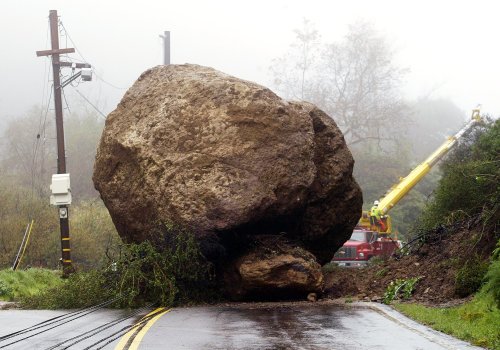No More Excuses—Find Time to Write
Today’s guest post is by Drae Box.
We all have reasons why we don’t get things done. Work, kids, studying, TV shows on demand, and socializing being the big five. We thrive on excuses! Yet we know we need to find time to write.
If this is something you struggle with, it likely frustrates you.
When we decide we don’t have time to do something, it’s because of a deeper truth. Either we’re scared, we’re not prepared to work hard, or it’s not as important to us as everything else is right now.
Let’s take a look at some reasons we don’t write.
Being Scared
As writers, we can be scared of failure and of success. We can be scared of being judged. We can feel pressured to make our next story even better, which leads to fear and excuses. We can be scared of making the wrong decisions and making a fool of ourselves. Sometimes we just fear that we’ll never get anywhere. Don’t let this be an excuse.
Not Prepared to Work Hard
Nobody becomes a professional or a master at something overnight. We see people who are already successful and want to be at that stage of success too. The truth is, hard work comes before any person’s success. Many writers don’t want to push themselves to write when they don’t feel like it.
This is an excuse. Steve Jobs didn’t make iPhones successful by waiting around for ideas to take action on. We look at big-name authors, and we forget they sat down and put in the work that made them recognized today.
Being a writer is hard. It’s not for everybody.
It’s Not Important (Right Now)
For others, writing is a hobby on their priority list. That’s perfectly OK, but recognize that it is highly unlikely you will become published to a professional standard if this is the case. Time does need to be put in to make our stories evolve to their best. If we don’t consider writing important, it won’t ever be important enough for us to take time to take action and see results.
This one especially is a losing mindset. Few best-selling authors come from hobby writers. At some point, an author decides to get serious about his craft both in giving it time and in practice to get to best-sellerdom.
If you want to be a published author, this idea that writing isn’t important needs to be dumped.
Writing should be a big part of your life. Dare to care about your writing even if nobody else around you knows or cares. Action leads to motivation—not the other way around. If you decide writing is important, take action immediately and write something. Until you do take action, you’re playing a losing game.
Winning the Game of Being an Author
To be a successful author means recognizing that thinking you need to find time is different from stopping what you’re doing and writing the next scene. You need to be the author you want to be. Put in the work and hustle your butt off.
Here are some techniques to help you do that.
Reverse-Engineering Your Success
How do you decide if writing is important to you so that you make time to write?
Ask yourself what your primary and second desires/goals are right now.
Your primary desires are the ones that will fill you with regret, shame, guilt or self-hate for not achieving them before you die. The secondary desires are those that you’d like to have done by the time you die but wouldn’t be so upset about it. These desires are the root of why you are (or aren’t) writing.
Action Step
- Decide what your current three primary desires/goals are for this year. Write these down. Repeat this for the secondary desires. This digs down to what pushes you to write and do other things. Yes, it’s super fun to share your stories with others, but is there another reason?
You’re going to be predisposed to put writing down because you’re reading this. Don’t, unless it really is something you still want to do; writing is a choice. It’s not something you have to do. Nobody’s looking over your shoulder.
- Once you know what those primary and secondary desires are, write underneath them the top three repeatable action steps you can take to reach those goals or make positive steps toward them.
Stop Using Excuses and Be Self-Aware (The Reverse Why Technique)
A technique I’ve developed for whenever I’m not writing is The Reverse Why. You have an honest conversation in your head or on paper with yourself. You dig deep to discover why you haven’t started writing today, especially when you are choosing to do other things instead.
- Stop what you’re doing and ask yourself, “Why aren’t I writing?”
- Answer, then ask, “Why?”
- Answer again. Now this is where it gets tricky to guide you through it. Depending on your answer, you’ll either ask yourself why again or pick:
- Why else?
- OK, and?
- OK, then what?
- Keep asking yourself until you get stuck.
Here’s an example, so you can see it in action:
Why don’t you want to write right now?
Because I want to work on this business course I’ve enrolled in.
Why?
Because I’m enjoying it, and it’s helping me to grow my business.
Why is that important to you right now?
Because I want to help other fiction writers.
Why?
Because I enjoy it.
Why else?
Because it would be nice to earn while providing value for serious fiction writers.
So this is about helping others and earning while doing it. Why is earning important?
So I can make better products and services for my clients with the income I end up with, and have more time to create these things for them. If this doesn’t continue to happen, I’ll end up going back to the 9-5 jobs I hate.
But don’t you make money writing your fiction too?
Yeah, but it’s not about that. I love sharing the stories of my characters and seeing what they get up to.
So why else are you selling them, if your primary goal is to share them?
Because making them available costs time and money, so I charge to earn back the costs of quality control, marketing, and time. Any extra income goes to the next book’s publication and marketing costs.
So if you make money doing both and they contribute to each other, why aren’t you writing?
Um . . .
Next Step: What to Do Now
Now you know if A) writing is important right now and B) how to be self-aware and talk yourself into doing the work that matters, let’s talk about what comes next: actually having something to write.
It comes down to setting yourself up for success.
- When you can’t write, think about writing. Think about your characters’ motivations and emotions, the conflict of the story and how it’s affecting their world. Consider the upcoming scenes and the characters’ stakes and let your characters’ conversations play out in your mind.
- Create bullet points/quick notes. This works great for pantsers and planners. Jotting down a few quick points to keep in mind for your next scene helps when you pick up that pen or open your file.
- Brief your characters. Have a five-minute briefing with a character as if you’re her boss or someone she looks up to for guidance. This helps identifies the best action the character can take next for her own inner and outward stakes.
- Brainstorm. Brainstorm the next few scenes and chapter possibilities, while keeping in mind the characters, conflict, and stakes. Go as loose or as tight as you want. Use these to put ideas down—only, don’t force yourself to focus too much on details or the order until you need to.
- Identify the key scenes for character, conflict, and stakes. These are usually the key scenes you know are coming, even for pantsers—the scenes in which everything changes or deeply affect the character.
- Write out of order. If you can piece all your scenes together at the end, they don’t have to be written in the order they’ll be read. If a scene is putting a lot of pressure on you, break it down into smaller chunks or skip it and come back to it later.
- Additional: The 12 Key Pillars of Novel Construction is a great extensive exercise book for the beginning preparation stages of making sure your character is properly motivated. Using it helped me boil down the emotional internal conflicts and stakes for each of my primary characters during prep for a rewrite of my novel.
Do you make excuses for not writing? What are they, and do any of these suggested methods appeal to you, to help you crash past your resistance? Share in the comments.
 Drae Box is an author success mentor and fantasy author who has picked apart, researched, and experimented with different ways authors can build their success. Grab these gift worksheets for this article and to find out more about Drae. Connect with Drae via her website and Twitter.
Drae Box is an author success mentor and fantasy author who has picked apart, researched, and experimented with different ways authors can build their success. Grab these gift worksheets for this article and to find out more about Drae. Connect with Drae via her website and Twitter.












Really useful post thanks. I like and can use the idea of a 5 minute briefing with my characters, letting them lead the way. And of being sure how serious I am about the whole damn business – very thought-provoking.
Heya Gill!
I’m really glad you found the article useful. Thanks for taking the time to appreciate it and leave your comment. I would love to hear how you get on with the five minute briefings – email me through my website and tell me how you get on. If you get stuck, my inbox is open to you. Happy writing!
Here’s a motto from Benjamin Franklin that is apropos, but with many of us (me included) probably honored more in the breach than the observance. “Would you be ashamed to have your master catch you idle? Are you your own master. Then be ashamed to catch yourself idle.” It probably wouldn’t hurt and might even help for a writer to make a little sign and keep it on the desk, or somewhere in view.
Heya Hal! That’s a fantastic quote and yes, definitely appropriate! I appreciate your taking the time to read the article and leave your comment. Hope you have a great time writing and do feel free to reach out if you get stuck!
Throughout my writing journey, I used a lot of excuses to not write. Because of my unwillingness to take writing seriously, I wanted to quit on several occasions. Recently, I decided to make a conscious effort to make writing a part of my life. I struggle with the fear of submitting anything because I feared of rejection. I feared, and still do, any sort of criticism that says I have no business writing. I’m working on overcoming that fear. And, in the meantime, continue to write the best stories I can.
Heya George! Thanks for reading the article and taking the time to leave a comment. I appreciate your attention.
It sounds like you’re making some great steps forwards to respect your writing goals, which is amazing! Feel free to reach out to me if you get stuck with working through your fear and need to talk it or anything related to writing through.
I identify with you, George. I want to take my writing seriously, but I struggle with the feeling of despair when I do submit something for publication, something I’ve invested much of myself and my time into, only to have the editor say, “it doesn’t meet our needs at this time.” especially if I’ve really tried to pick up on the slant the editor is looking for. On the other hand, I’m getting personal rejections rather than form letters! I view that as a plus! Your plan is a good one: to continue to write the best stories you can.
as for me, only lazynes may be the reason. Great article. It inspires to work and work hardly